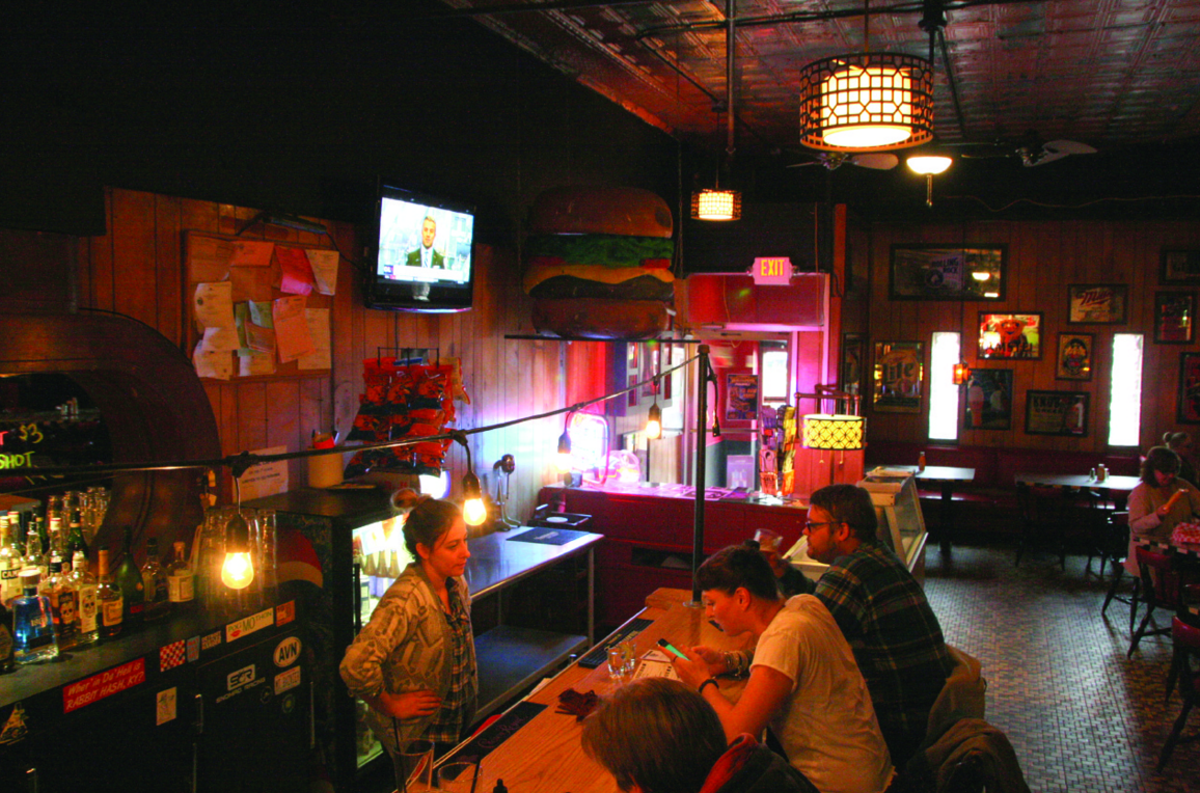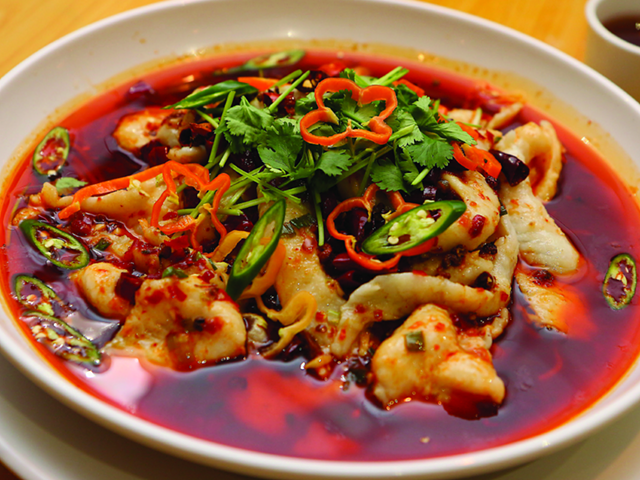Detroit, with its vast acres of abandoned property, has seen a slew of investment in recent years from folks wanting to transform once-established businesses into something new.
That's especially true for restaurant owners, who are keen on reimagining old-school restaurants, remaking them in the image of the current culinary boom. It's not always a total teardown. Some spots like Campau Tower in Hamtramck, Checker Bar downtown, and Honest John's in Midtown have made small tweaks by updating the menu, scouring the kitchen and offering up $5 quarter-pounders instead of dollar sliders.
Others have undergone complete overhauls in menu and concept, while still paying homage to the original space in subtle ways. Restaurateur Jacques Driscoll has given us several examples: Green Dots Stables, Johnny Noodle King, and the new Huron Room — all on the city's southwest side.
No matter the scope of the project, these reimagined restaurants are tests of perseverance and timing, say those who've partaken in them.
The properties for Driscoll and his wife's first two restaurants were appealing because they were already established restaurants, seemingly move-in ready.
With Green Dot Stables, which back in the 1970s was considered a high-end steakhouse where gamblers went to make bets on horse racing, the trick to opening up was ripping out old carpet and scrubbing the stench of nicotine out of the walls.
When it came time to name the restaurant, he stuck with the original because "nothing else seemed to suit the character of the place." So he kept much of the original equestrian-themed decor and went to the racetrack to learn about racing culture.
"Now people ask me about racing all the time, but I don't know anything about it," Driscoll says.
These types of projects are appealing because they seem like a smooth transition, but once immersed in the transition, owners find themselves entrenched in renovation projects they never anticipated.
Driscoll's next project, Johnny Noodle King, came about one day when he visited the spot, then known as Johnny Ham King. He asked the owner half-jokingly if he would ever consider selling the place. He said yes, though and Driscoll and his wife, who was expecting their first child at the time, had themselves another property to work with.
"We thought [Johnny Noodle King] would be more of a turn-key kind of thing because it was an established restaurant," Driscoll said.
He was wrong. Although the layout remains the same, they had to gut the entire interior and start anew.
Nikita Sanches, owner of Rock City Eatery, who took over Hamtramck slider joint Campau Tower last year, can relate.
"It was greasy, what a greasy spoon is supposed to be," Sanches says. "We had to go in and degrease everything."
Then came the fryers, which had to be fixed every week. And the ancient refrigerator that used up so much energy it wound up cheaper to replace it completely.
And then there's the issue of getting locals to warm up to a new concept. Some spots like Checker Bar, whose menu underwent a face-lift last year when it went under new ownership, have found success in offering tad-healthier takes on bar food that appeal to the restaurant workers and younger downtown residents who frequent the place.
In working-class Hamtramck, where immigrant families are more likely to cook at home and long-timers are more likely to gripe when they can't get a meal for less than $5, changes can be harder to take.
Sanches took over the space when the previous owner shuttered, figuring locals less inclined to visit the trendier Rock City Eatery down the street would appreciate his creative takes on classic American burgers and hot dogs.
So far, they've been less than enthusiastic, he says. To keep up with the rent, he's had to raise prices some, and that's served to further to alienate the eatery's longtime customer base. It's a similar predicament he faced at RCE, even though that establishment has had far more critical success.
"It's tough, unless it's, like, densely populated area with younger people who have a more open mind to what people are trying to do," Sanches says.
Without that base of younger, more affluent customers, Sanches says, it's been hard to justify remaining in Hamtramck, which is why he signed a lease to move another former restaurant to Woodward Avenue in Midtown. He hasn't said how long he plans to keep Campau Tower running.
Driscoll seems to have found that coveted niche market in a part of Southwest Detroit, near the riverfront that's still heavy on industrial space, yet still close enough to that needed critical mass found in Corktown and Mexicantown.
That's what he's banking on for his latest venture, Huron Room, which, as of press time, was set to open in mid-November. The couple's most ambitious project yet, the lake fish-themed fish and chips spot is situated in a former liquor store on Bagley.
The couple actually purchased the property more than two years ago, before Johnny Noodle King came into the picture. The trouble has been fixing it up. When they opened it up, the floor was covered in water that was knee-deep. It had no working utilities. And old deli cases were still filled with moldy lunch meats, making the stench unbelievable.
Plus, "It didn't have the bones of a restaurant to work with," Driscoll says.
Now the tides are changing. Real estate that once came cheap is now creeping up in price. And most would agree that even when an inexpensive property can be found, the cost to renovate it can be overwhelming. Still, at a time when brand-spanking-new eateries are flourishing, it's nice to see restaurant owners tackling the task of paying respect to the city's past, while at the same time helping to reinvent its future.






